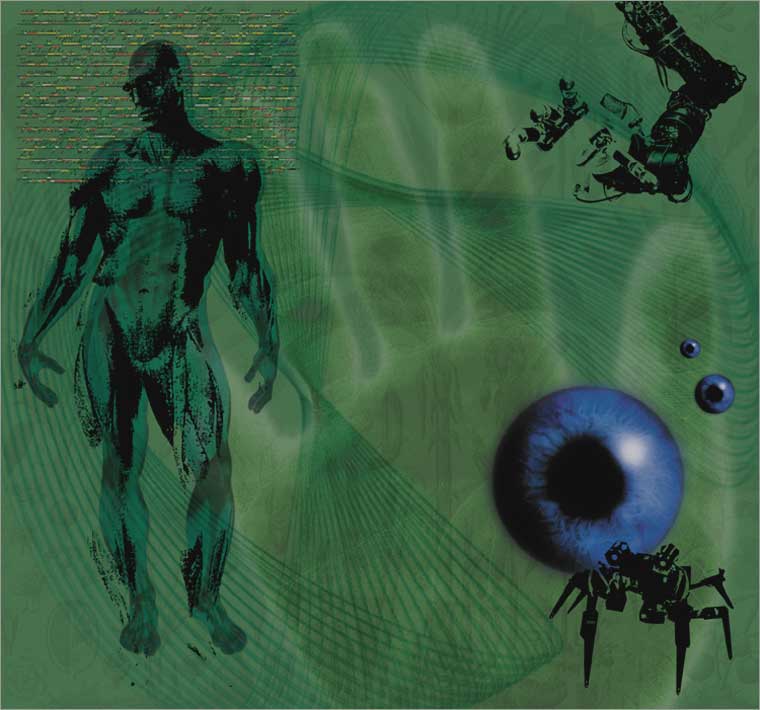 |
 |

Human Genes. The informatisation and consequent commercialisation of genetic information is not limited to plants and animals. The Human Genome Project is an international collaborative project with the objective of decoding the human genome. While this project is trying to secure genome information as an open source, private business corporations are racing ahead in an attempt to capitalize genome information.
The fusion of flesh and machine is a trend which has been inscribed
in the history of western technology from its beginnings. In recent years,
information technology, biology, and global networks have developed to a point
at which the convergence of technology and biology sheds doubt on the viability
of a distinct and definable human nature.
"This marks a major transition from
a world where distinctions between human and tool, human and machine, living
and dead, organic and inorganic, present and distant, natural and artificial
seemed clear … to the present, where all of these distinctions seem plastic,
if not ludicrous." (Chris Habbles Gray)
Biometrics. Biometric technologies such as facial recognition, finger scanning, and iris recognition, undermine people's autonomy over their bodies. Body properties are integrated into global computer networks. The colonisation of the body is entering a new phase.
Implant technology. Electronic implants allow the direct external control of physical and soon emotional functionalities.
Even if this promises new ways of treatment for hitherto incurable diseases, this is not the reason why the military, software and pharma industries sponsor research in implant-based electronic drugs.
Genetic Engineering. In the world of biotechnology, rice grains, tomatoes and computer chips no longer belong to distinct categories.
The development of information technology allows an ever more detailed knowledge of the genetic structure of biological entities. But the risks and drawbacks of genetic engineering are evident. Genetic pollution, reduction of biodiversity, incalculable biological hazards make the promise of solving the hunger problem sound cynical.
"Rather than reducing world hunger, genetic engineering is likely to exacerbate it. Farmers will be caught in a vicious circle, increasingly dependent on a small number of giant multinationals, such as Monsanto, for their survival." (Salil Shetty, Chief Executive at Action Aid)